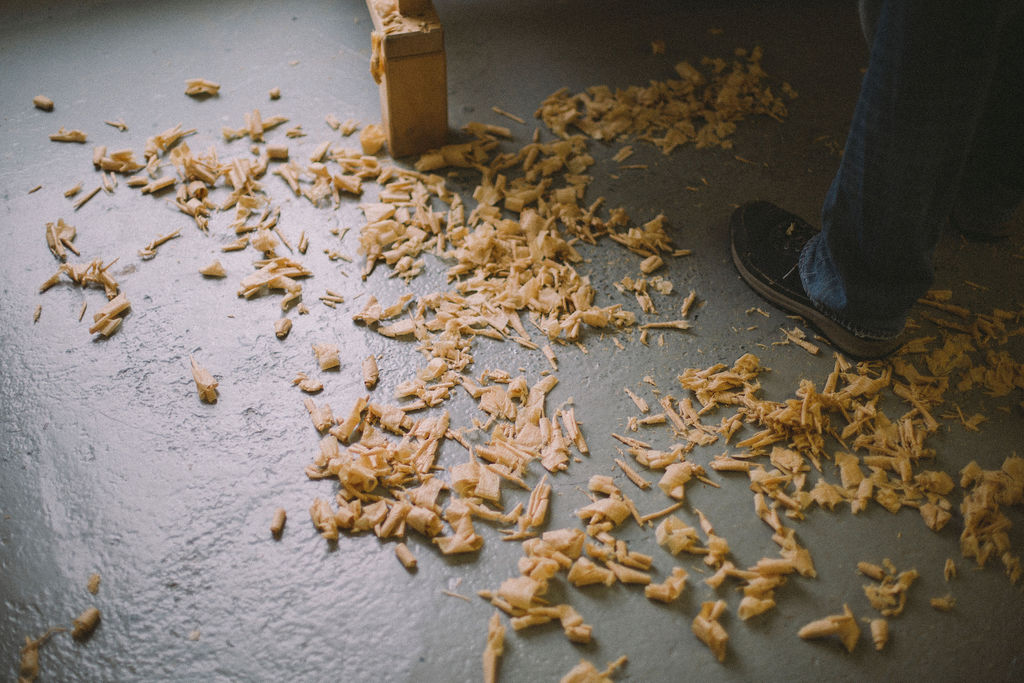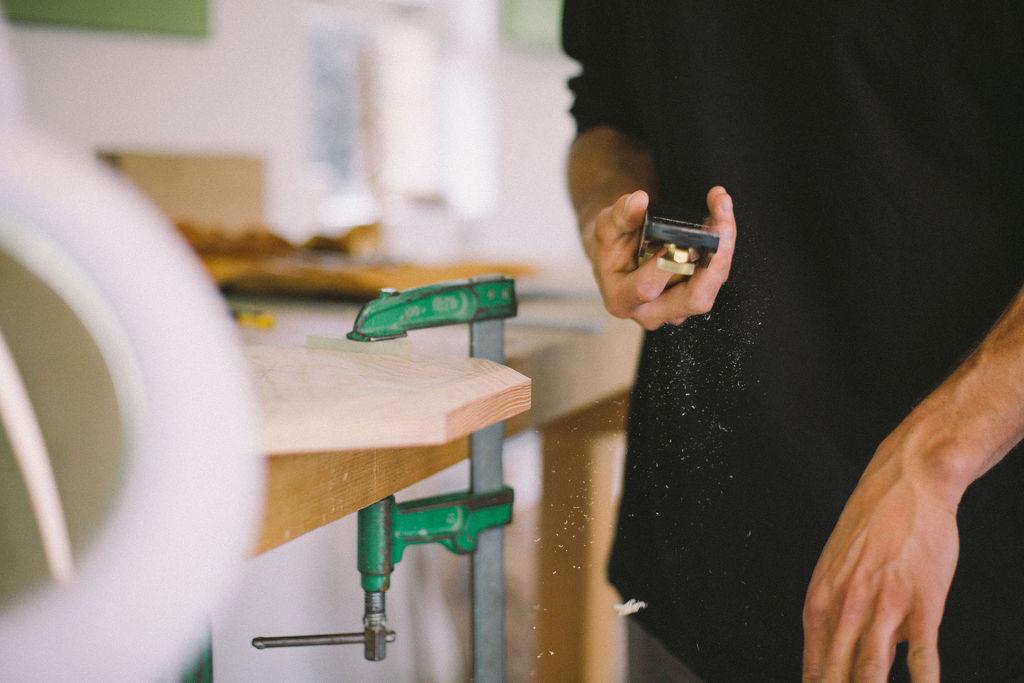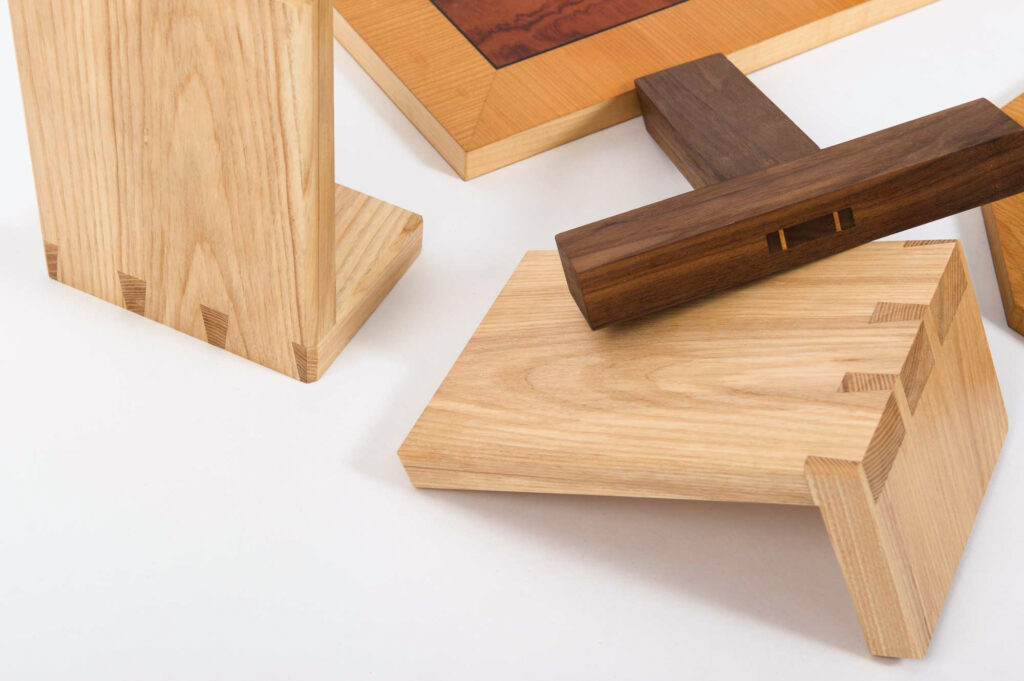Course Overview
In one month at Rowden, students uncover the foundation of precise woodworking with hand tools. They do so through our structured hand tool focused curriculum. Every part of their learning experience contributes to achieving a professional grade of joinery and woodwork. Four weeks dedicated at the bench offers you a footing as a fine furniture maker.

Course Structure
This course does not teach how to make a ‘table’ or ‘chair’. Such an approach generally leads to learning how to make that particular ‘table’ or ‘chair’ very well. However, it does not always give a student a basis of knowledge to work from afterwards under their own steam. Instead, at Rowden, we ensure the most fundamental joints, techniques and skills are fully explored, understood giving students the best chance of taking these skills with them. Each student should leave confident enough to be able to turn their hands to a wealth of different projects. They will have a newfound trust in their hands, have an understanding of how to reproduce excellence, and not just a replicate a piece of furniture.
The learning goes beyond the practical skills at the bench. One month students are party to our daily lectures with our full-time students. Accessing these lectures means exposure to a wealth of other, more advanced topics.
Below is an outline of the projects covered in a month. Each builds on the last, and commands a high level of skill, exploring techniques that can be applied in many instances of professional-grade woodworking.

Crosshalving
A simple, widely used joint a crosshalving, or half lap, offers rigidity. The cross halving puts the most fundamental skills into practice, such as how to plane, pare and mark out components. The fit of two intersecting pieces may seem simple, but is challenging; either it is right or it’s not. You will have a much greater understanding of why flat and square matter, as well as how to use your tools.
Winding sticks
Winding sticks are a vital tool in the workshop. You need these to see twists in your timber, aiding proper flat and square components. Here you are making your own, planing to a specific dimension, inlaying dark wood into a blonde wood, and introducing chamfers. The finishing in this project has to be exact, ensuring you keep the dark timber dust from contaminating the blonde. This project is also the introduction to polishing.
Breadboard
The breadboard requires precise application of marking and planing skills to create a hexagonal board. It has been a traditional apprentice piece since the Arts and Crafts period, and through the project, you learn to plane straight, plane on end grain and diagonally. It entails wide chamfers that need to be precise. If you lose accuracy, it shows very clearly where they meet. Hidden in this project are the key processes involved in creating solid wood panels and surfaces.
Mallet
A mallet is a quintessential tool for any cabinetmaker. The project hones the skill in chisel work. The flat working surfaces of the mallets are a challenge as are the dead flat faces across the piece. It is a demanding task that further improves your skill with chisels and planes particularly.
Mortice & Tenon
A mortice & tenon is one of the longest standing joints in woodworking history. At Rowden, a through tenon as well as a wedged tenon version is applied in our students’ workbench underframes. The wedged tenon can enable furniture incorporating it to be knocked down and moved around much more easily. This wedging turns a simple glue joint into a much stronger mechanical joint. This project refines marking and measuring skills and ensures mastery of an absolutely fundamental joint.
BookEnds
The Rowden bookends are a chance to tackle perhaps the most celebrated joint in cabinetmaking; dovetails. These accurately dovetailed pieces will be an enormous challenge, regardless of your prior experience. Two pieces of wood, dovetailed together to create a seamless and strong joint. Here accurate sawing, marking out and fitting is further distilled. We tackle this project at the very end of the course – the objective is that you not only understand how precise dovetails come together, but also have the confidence to create them beyond the course.
our approach to Hand Skills
As with all the learning at Rowden, we move at the pace of the individual. As is true in any other Rowden course, this will be a period at the bench requiring the utmost patience and attention. Progress comes when students focus on quality, not speed and competing with others in your group will make for a markedly less fulfilling course.
Moving forward depends on getting projects right, not just getting them done. The approach we take is focused on skills for making furniture, not a piece of furniture and we’ve observed time and again, this way renders better results, better understanding and better retention.

Your tutors
Senior Cabinetmaking Tutor, Duncan Roberts works with our One Month students. His encouragement, focus and thoughtful attention will gently push you and your hand tool skills to a new level. You may also spend time with tutors Daren Millman, Ed Wild, or others who will be teaching daily on a wide range of subjects in fine woodworking.
Logistics: Getting to Rowden
Every year around 99% of our students are coming from elsewhere in the UK or the world. Students attending our one month course usually have some understanding of what they don’t know and want to significantly increase the quality of their own work. As with all our courses, students at Rowden are anywhere between 18 and 80. Universally there are logistics to consider.
Can I do this? Where will I stay? How will I get around? What is Devon or the UK like? We can help with all of these questions. Our FAQ’s page will answer most but get in touch if you would like to discuss your specific situation.
Course Tuition Fees:
One Month Woodworking Course:
£3,850 inclusive of all materials, tool usage and tuition.
